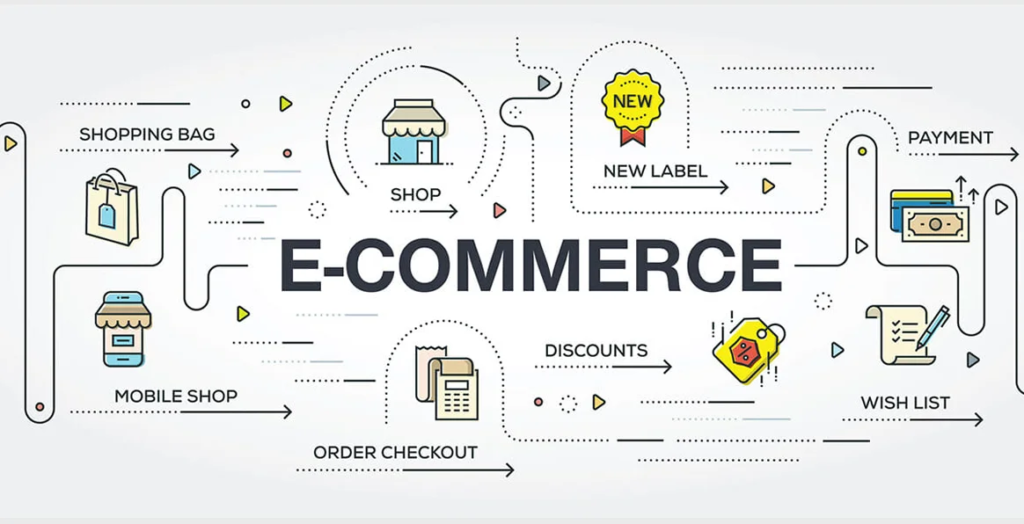Unlocking the Power of E-Commerce: A Comprehensive Online Course Guide
In today’s digital age, e-commerce has revolutionized the way businesses operate, offering endless opportunities for entrepreneurs and established brands alike. Whether you’re looking to start your own online store, expand an existing business, or simply understand the dynamics of the digital marketplace, enrolling in an e-commerce online course can be a game-changer.

Why E-Commerce?
E-commerce is more than just a buzzword; it’s a multi-billion-dollar industry that continues to grow rapidly. With the convenience of shopping from anywhere at any time, coupled with a vast array of products and services available at our fingertips, it’s no wonder that consumers are increasingly turning to online platforms. For businesses, e-commerce offers a unique opportunity to reach a global audience, reduce operational costs, and build a scalable business model.
However, navigating the e-commerce landscape isn’t always straightforward. From understanding the basics of setting up an online store to mastering the complexities of digital marketing, there’s a lot to learn. This is where a well-structured online course comes into play.

What to Expect from an E-Commerce Online Course
- Foundational Knowledge: The best courses start with the basics. You’ll learn what e-commerce is, its different types (B2B, B2C, C2C, etc.), and how the industry has evolved over the years. This foundational knowledge is crucial for understanding the broader context of your business efforts.
- Setting Up Your Online Store: One of the first steps in your e-commerce journey is setting up your online store. A good course will guide you through the process of choosing a platform (like Shopify, WooCommerce, or Magento), designing your site, and optimizing it for user experience (UX).
- Product Sourcing and Inventory Management: Knowing where to source your products and how to manage your inventory efficiently is key to running a successful e-commerce business. Courses often cover topics like dropshipping, wholesale purchasing, and managing supply chains.
- Digital Marketing and SEO: Attracting traffic to your site is essential for sales. E-commerce courses typically include modules on digital marketing strategies, including social media marketing, search engine optimization (SEO), email marketing, and pay-per-click (PPC) advertising.
- Customer Experience and Retention: Building a loyal customer base is as important as acquiring new customers. Learn about customer relationship management (CRM) tools, personalization techniques, and strategies to enhance customer satisfaction and retention.
- Data Analytics: In e-commerce, data is king. Understanding how to analyze your website traffic, sales data, and customer behavior can help you make informed decisions and improve your business strategy. Courses often provide training on using tools like Google Analytics and other e-commerce analytics platforms.
- Legal and Ethical Considerations: Operating an online business comes with legal responsibilities. Learn about data privacy laws, consumer protection regulations, and ethical business practices to ensure your e-commerce store is compliant with the law.
- Scaling Your Business: Finally, advanced courses may cover strategies for scaling your business, such as expanding into new markets, offering new products or services, and automating processes to handle increased demand.

Choosing the Right Course
With so many online courses available, how do you choose the right one? Here are some tips:
- Accreditation and Reviews: Look for courses offered by reputable institutions or industry experts. Check reviews and testimonials from past students to gauge the course’s effectiveness.
- Content and Structure: Ensure the course covers the topics you’re most interested in. Some courses offer a broad overview, while others focus on specific aspects of e-commerce.
- Flexibility: If you’re balancing work, family, and learning, choose a course that offers flexibility in terms of pacing and access to materials.
- Support and Community: A good course often includes access to a community of learners and instructors. This can be invaluable for networking and getting answers to your questions.

Conclusion
Investing in an e-commerce online course is an investment in your future. Whether you’re a budding entrepreneur or an established business owner looking to expand your online presence, the skills and knowledge you gain will equip you to succeed in the fast-paced world of e-commerce. So why wait? Start exploring the options today and take the first step towards unlocking the full potential of your online business.





Leave a Reply